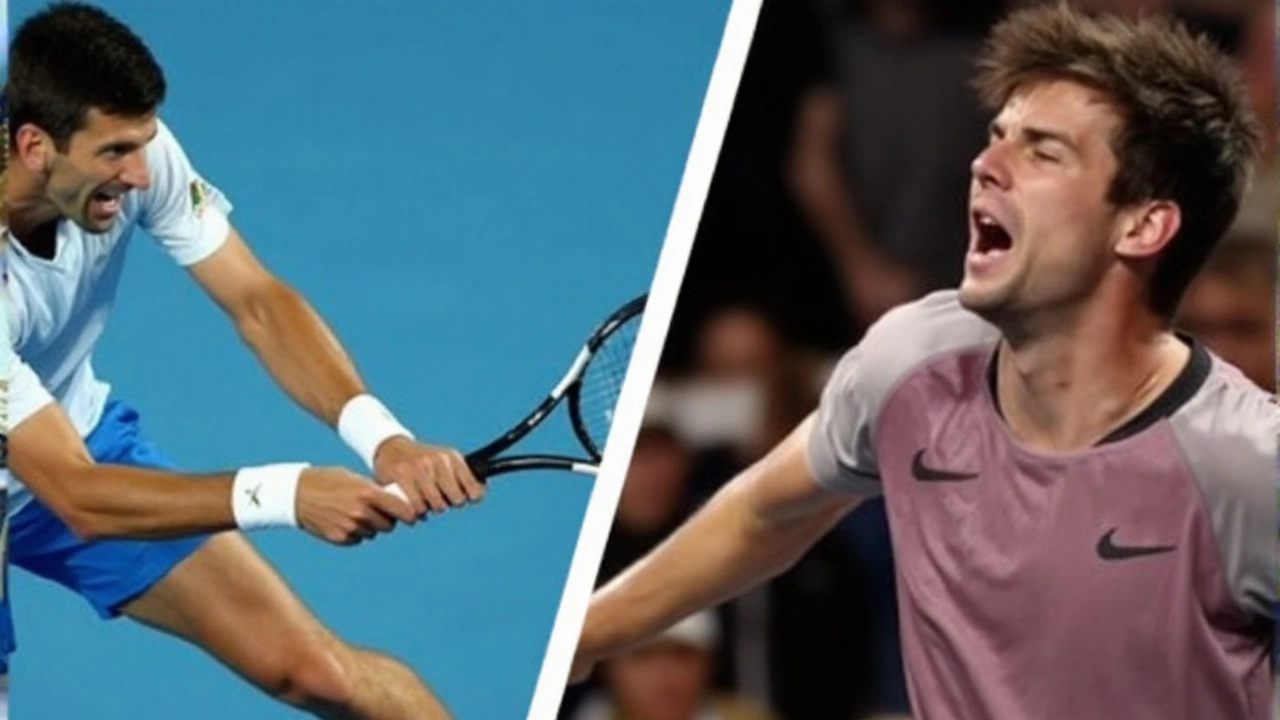A streak that won’t budge
At 38, Novak Djokovic still treats Arthur Ashe Stadium like a second office. He beat Taylor Fritz 6-3, 7-5, 3-6, 6-4 in the US Open quarterfinals, moving to 11-0 against the American and booking a record-extending 53rd Grand Slam semifinal. The scoreline tells you he was tested. The details tell you he handled the biggest points better than anyone else in tennis still can.
Fritz had chances—plenty. He created 13 break points and missed the first nine. The crowd on Ashe tried to lift him when he finally punched through late in the third set, but the hole was too deep. Serving at 4-5 in the fourth to stay alive, the 2024 US Open runner-up blinked with a double fault on Djokovic’s third match point. It was a stark ending to a match that had balanced on a knife’s edge for two sets.
Djokovic admitted it felt tight. He called it “incredibly close” and said it could have been “really anybody’s match,” pointing to a run of escape acts in the second set when he wriggled out of danger. That stretch defined the night. Fritz’s forehand rained down heavy pace when he got first-strike looks, but Djokovic’s return and depth kept tugging the rallies back to neutral.
There was nothing fancy about the tactics: Fritz needed short points; Djokovic made them long. When the American landed his first serve, he controlled the court. When he didn’t, Djokovic put balls at his shoelaces, forcing him to hit up and hit again. The Serbian’s ability to reset a rally after a defensive stretch—one sliding backhand, one low skidder, one redirect—repeatedly turned 50-50 exchanges into 60-40 in his favor.
Key numbers from the night:
- Head-to-head: Djokovic leads Fritz 11-0
- Break points: Fritz converted 2 of 13
- Grand Slam semifinals: Djokovic reaches No. 53, a men’s record
- US Open titles: Djokovic owns four, chasing a fifth
For Fritz, this one will sting. He carried the last hopes of the home crowd, and the American men’s major drought—stretching back to Andy Roddick’s 2003 US Open—rolls on. It wasn’t for lack of fight. He pressed forward, mixed in body serves, and tried to move Djokovic off his spots with inside-out forehands. But when the second set offered a window, he couldn’t walk through it. Against Djokovic, that’s often the whole story.
Djokovic’s win also completes a clean sweep of major semifinals this season—the seventh time in his career he has reached the last four at all four Slams in a calendar year. That’s not just consistency; that’s dominance, achieved once again under the heaviest spotlight in New York.

Alcaraz next: a blockbuster waiting
Waiting on Friday is Carlos Alcaraz, a five-time major champion who has not lost a set this fortnight after a crisp 6-4, 6-2, 6-4 win over Jiri Lehecka. He’s come through the draw with clean, attacking tennis—serve popped, forehand heavy, backhand down-the-line biting when it matters. The legs look fresh. The swagger is back.
Djokovic leads their rivalry 5-3 and has won their past two meetings, but this will be their first duel at Flushing Meadows. That matters. Ashe plays a little different—big court, big noise, cooler night sessions that slow the bounce just enough to reward depth and timing. Djokovic thrives there because he reads the ball early and turns defense into offense in a blink. Alcaraz thrives there because he can turn any neutral ball into a highlight, then follow with a drop shot that dares you to sprint.
It’s a contrast of styles and generations that still feels fresh. If Djokovic controls the return games and crowds the baseline, he can pin Alcaraz into longer exchanges and test his shot tolerance. If Alcaraz lands heavy first serves and finds forehand patterns early, he can pull Djokovic off the court and open lanes for backhand rockets and those disguised drop shots.
There’s real history in play too. Djokovic already owns four US Open titles and is chasing a fifth in an era where Ashe has doubled as both coronation and chaos. Alcaraz knows the room, having lifted trophies on similar stages and relishing the New York night.
Friday brings two certainties: a full stadium and a match that will swing on pressure points—second serves at 30-all, returns struck from the baseline chalk, and the bravery to go big when the rally begs for safe. Djokovic got those calls right against Fritz. Alcaraz hasn’t blinked all week. Now they meet, and New York gets the blockbuster it wanted.
